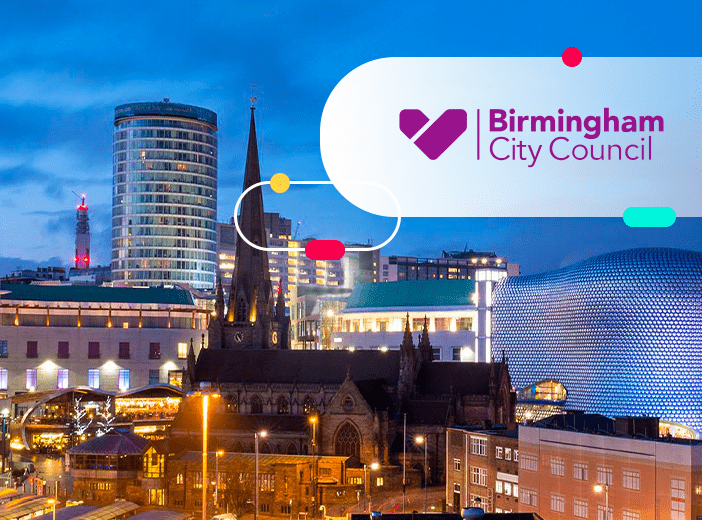How open data creates new services for citizens
Did you know that Angers was one of the first local governments to establish an open data plan? Their portal dates back to 2013. We interviewed Antoine Decourt, Open Data Project Manager for the City of Angers and the Angers Loire Metropolitan Area.

Did you know that Angers was one of the first local governments to establish an open data plan? Their portal dates back to 2013. “At first, we didn’t know where we were going,” explains Antoine Decourt, Open Data Project Manager for the City of Angers and the Angers Loire Metropolitan Area, “but we were guided by a desire for transparency.” Their first–“makeshift”–portal moved into high gear in 2016, thanks to ODS (Opendatasoft): “That change in CMS marked the second stage in the development of our open data platform. It meant that we could work with APIs, offer more services, and work more effectively, in terms of both the back office and the front office.”
What is the objective for the city of Angers? “Our open data journey is making us proactive about making information available and is helping us promote an open-minded approach in the community.” By definition, this is a long-term process. Residents must be given the time to get used to the fact that society is increasingly open and that all this data is available for their use. Patience has its rewards… As people get hold of the platform, the city’s entire ecosystem expands: “The feedback we’ve received for our portal makes us reexamine the best ways to communicate, both externally and within the city government.”
The "Vivre à Angers" ("Living in Angers") App: An Open Data-Driven Initiative
Open data gives cities an opportunity to add creativity to the way it distributes information to the public, as well as to establish new services. Here’s a specific example: The city’s app, Vivre à Angers (“Living in Angers”). “The app springs from a simple question: How do we communicate with users in the smartphone era? We recognized that our website wasn’t sufficient and that we needed to create a dedicated tool for mobile phones.” This app grants Angers residents easy access to cafeteria menus, public swimming pool hours, etc. This app project was made possible by the Angers data portal. “ODS is an essential part of the ‘back office’ of the app. Vivre à Angers is based on datasets that were already available as part of our open data approach.” But that’s not everything…
Indeed, the creation of the app drove them to open up additional datasets. In other words, Vivre à Angers both drew from the city’s open data portal and added to it. “Thanks to the app, we’ve been able to make new data available, which opens the door for new potential services to be established.”
Just one year after its launch, Vivre à Angers has 20,000 active users and has generated a great deal of positive feedback. “That means we’ve successfully reached a certain audience, which encourages us to keep up our efforts. We’ll continue optimizing user experience, providing new types of information, and creating new services.”
Moving Towards a Smart Territory
Vivre à Angers is part of an ambitious “smart territory” plan. “The goal is to put data at the center of collective action,” Antoine explains. “Data will help us make further progress in our public policy management.” From lighting to trash collection and energy consumption in public buildings, the key is to make use of the data and generate new data, with the goal of creating services capable of meeting the city’s challenges.
“In my opinion, a smart city thinks constantly about how to bring better quality services to residents” – Antoine Decourt
With the goal of becoming a smart city, Angers must work to improve all aspects of the city’s infrastructure, making meaningful use of technology. Here is one specific example: “We are going to install 3,600 sensors around the city. The real-time data that they generate will allow us to restrict public lighting to the bare minimum.”
This project, implemented by the company Engie, is currently in the planning and development phase. “The adventure on which we’re about to embark is a nearly 12-year journey.” However, this work, inspired by open data, has already been in progress for some time and it goes without saying that it will continue well beyond these next 12 years. “I don’t look at this as a before-and-after situation,” Antoine explains. “I view the smart city as an ongoing project. The Smart Territory represents a continuation of our open data plan.”
Putting Residents at the Heart of the Smart City
As a particular point of contact between the local government and residents of Angers, the Vivre à Angers app is an essential element of this plan. Among other benefits, it will help to promote the use of public transportation or bicycles and to reduce the number of vehicles on the road. It will also make it possible to provide air quality data in real time
“As a smart territory, we must put ourselves in the users’ shoes: What do they need? We need to reassess things all the time, taking their questions and feedback into consideration.” This culture of reassessment requires city stakeholders to be in tune with the reality on the ground and to offer physical and technical infrastructures that match the city’s ambitions.
The city of Angers has been following this reassessment approach for seven years now, and Antoine reports that the results are indisputable: “Some of my colleagues were opposed to the idea of open data at first, but that’s no longer the case! All of us are convinced that this project is part of a positive approach to sharing with the community.”
Here at ODS, we can’t wait to see where these projects will lead Antoine and his team. To be continued…



